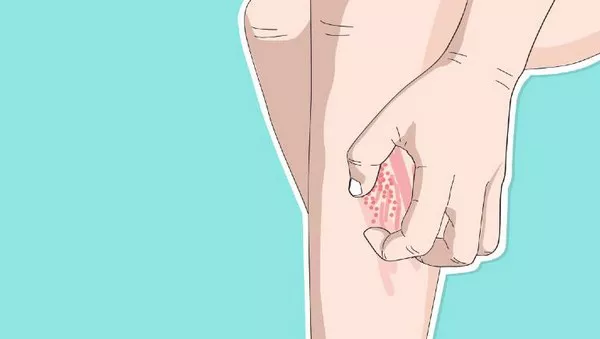Psoriatic arthritis (PsA) is a chronic autoimmune condition that affects individuals with psoriasis, a skin disorder characterized by red, scaly patches. PsA can cause joint pain, stiffness, and swelling, which can significantly impact a person’s quality of life. One of the common areas affected by PsA is the foot, leading to significant discomfort and mobility issues. In this article, we will explore the relationship between psoriatic arthritis and foot pain, including its causes, symptoms, diagnosis, and treatment options.
Understanding Psoriatic Arthritis
Psoriatic arthritis is a type of inflammatory arthritis that occurs in people with psoriasis. It is an autoimmune disease, meaning the body’s immune system mistakenly attacks its own tissues. In PsA, this attack is directed at the joints, leading to inflammation and pain. While psoriasis typically affects the skin, PsA primarily targets the joints and areas where tendons and ligaments attach to bones (entheses).
The exact cause of PsA is not fully understood, but it is believed to involve a combination of genetic, environmental, and immune system factors. Certain genes are associated with a higher risk of developing PsA, and environmental triggers such as infections or physical trauma can initiate the disease in susceptible individuals.
How Psoriatic Arthritis Affects the Feet
The foot is a complex structure comprising 26 bones, 33 joints, and numerous muscles, tendons, and ligaments. PsA can affect any part of the foot, leading to pain and functional impairment. Here are the main ways PsA can cause foot pain:
1. Joint Inflammation: PsA commonly affects the joints in the toes (interphalangeal joints) and the midfoot (tarsometatarsal joints). Inflammation in these joints can cause pain, swelling, and stiffness, making it difficult to walk or stand for prolonged periods.
2. Enthesitis: Entheses are the sites where tendons and ligaments attach to bones. PsA frequently causes enthesitis, leading to pain and tenderness in areas such as the Achilles tendon (at the back of the heel) and the plantar fascia (a thick band of tissue running across the bottom of the foot). Enthesitis can cause significant discomfort, especially with activities like walking or running.
3. Dactylitis: Also known as “sausage digits,” dactylitis is the inflammation of an entire finger or toe. This condition is common in PsA and can cause severe swelling and pain in the affected digit, leading to difficulty in using the foot properly.
4. Plantar Fasciitis: PsA can cause inflammation of the plantar fascia, resulting in a condition known as plantar fasciitis. This leads to sharp pain in the heel or bottom of the foot, especially during the first steps in the morning or after periods of rest.
5. Bone Spurs: Chronic inflammation from PsA can lead to the formation of bone spurs (osteophytes) in the foot. These bony growths can cause pain and restrict movement.
Symptoms of Psoriatic Arthritis in the Feet
Foot pain in PsA can manifest in various ways, and the severity can vary from person to person. Common symptoms include:
- Pain and Swelling: Pain and swelling in the joints of the toes and midfoot are common. The pain may be constant or intermittent and can worsen with activity.
- Stiffness: Stiffness in the foot, particularly in the morning or after periods of inactivity, is a frequent complaint. This stiffness can make it challenging to move the foot and perform daily activities.
- Tenderness: Tenderness at the sites of tendon and ligament attachments, such as the Achilles tendon and plantar fascia, can cause significant discomfort.
- Redness and Warmth: Inflamed joints and entheses may appear red and feel warm to the touch.
- Difficulty Walking: Pain and stiffness can make walking difficult, leading to an altered gait or limping.
- Nail Changes: PsA can also affect the nails, causing pitting, discoloration, or separation from the nail bed. These changes can be painful and affect the overall health of the foot.
Diagnosis of Psoriatic Arthritis
Diagnosing PsA, especially when it affects the feet, requires a comprehensive approach. A healthcare provider, often a rheumatologist, will consider the patient’s medical history, physical examination, and various diagnostic tests. The following steps are typically involved:
1. Medical History: The healthcare provider will inquire about the patient’s symptoms, family history of psoriasis or PsA, and any known triggers or exacerbating factors.
2. Physical Examination: A thorough examination of the feet will be conducted to assess joint swelling, tenderness, and range of motion. The provider will also check for signs of enthesitis and dactylitis.
3. Imaging Studies: X-rays, ultrasound, or MRI may be ordered to visualize the joints, bones, and soft tissues of the feet. These imaging studies can help identify joint damage, bone spurs, and inflammation.
SEE ALSO: Can Psoriatic Arthritis Cause Shortness of Breath?
4. Blood Tests: Blood tests may be performed to check for markers of inflammation (e.g., C-reactive protein, erythrocyte sedimentation rate) and to rule out other types of arthritis.
5. Joint Aspiration: In some cases, a joint aspiration (arthrocentesis) may be performed to analyze the synovial fluid within the joint. This can help differentiate PsA from other forms of arthritis.
Treatment Options for Psoriatic Arthritis Foot Pain
Effective management of foot pain in PsA requires a multifaceted approach tailored to the individual’s needs. Treatment goals include reducing pain, controlling inflammation, improving joint function, and preventing long-term damage. Here are the main treatment options:
Medications:
- Nonsteroidal Anti-Inflammatory Drugs (NSAIDs): NSAIDs such as ibuprofen and naproxen can help relieve pain and reduce inflammation. These are often used for mild to moderate symptoms.
- Disease-Modifying Antirheumatic Drugs (DMARDs): DMARDs, including methotrexate and sulfasalazine, are used to control the underlying inflammation and prevent joint damage.
- Biologic Agents: Biologic drugs, such as tumor necrosis factor (TNF) inhibitors (e.g., adalimumab, etanercept) and interleukin inhibitors (e.g., ustekinumab, secukinumab), target specific components of the immune system to reduce inflammation.
- Corticosteroids: Corticosteroid injections can provide rapid relief for severe joint or tendon inflammation. However, long-term use is generally avoided due to potential side effects.
Physical Therapy:
- Exercise: Physical therapy exercises can help improve joint flexibility, strength, and overall foot function. Low-impact activities like swimming or cycling are often recommended.
- Stretching: Stretching exercises, particularly for the Achilles tendon and plantar fascia, can alleviate stiffness and improve mobility.
Orthotic Devices:
- Shoe Inserts: Custom orthotic inserts can provide support and cushioning to relieve pressure on painful areas of the foot.
- Supportive Footwear: Wearing shoes with good arch support and cushioning can reduce foot pain and improve comfort.
Lifestyle Modifications:
- Weight Management: Maintaining a healthy weight can reduce the load on the feet and alleviate pain.
- Activity Modification: Avoiding activities that exacerbate foot pain and incorporating rest periods can help manage symptoms.
Surgical Interventions:
- Joint Surgery: In severe cases where joint damage is significant, surgical options such as joint replacement or fusion may be considered.
- Tendon Repair: Surgery to repair or release tendons affected by enthesitis may be necessary in some cases.
Managing Foot Pain: Tips and Strategies
In addition to medical treatments, there are several self-care strategies that individuals with PsA can employ to manage foot pain effectively:
- Heat and Cold Therapy: Applying heat can help relax muscles and reduce stiffness, while cold therapy can reduce inflammation and numb pain.
- Foot Care: Regular foot care, including moisturizing the skin and trimming nails properly, can prevent complications and reduce discomfort.
- Supportive Accessories: Using walking aids such as canes or crutches can offload pressure from the affected foot and reduce pain.
- Regular Monitoring: Regular check-ups with a healthcare provider can help monitor disease progression and adjust treatment plans as needed.
Conclusion
Psoriatic arthritis is a chronic condition that can significantly impact the feet, causing pain, swelling, and functional impairment. Understanding the ways in which PsA affects the feet and seeking appropriate medical care are crucial for managing symptoms and maintaining a good quality of life. With a combination of medications, physical therapy, lifestyle modifications, and self-care strategies, individuals with PsA can effectively manage foot pain and improve their overall well-being. If you experience foot pain and suspect it may be related to PsA, it is essential to consult with a healthcare provider for a proper diagnosis and personalized treatment plan.
Related Topics:



























